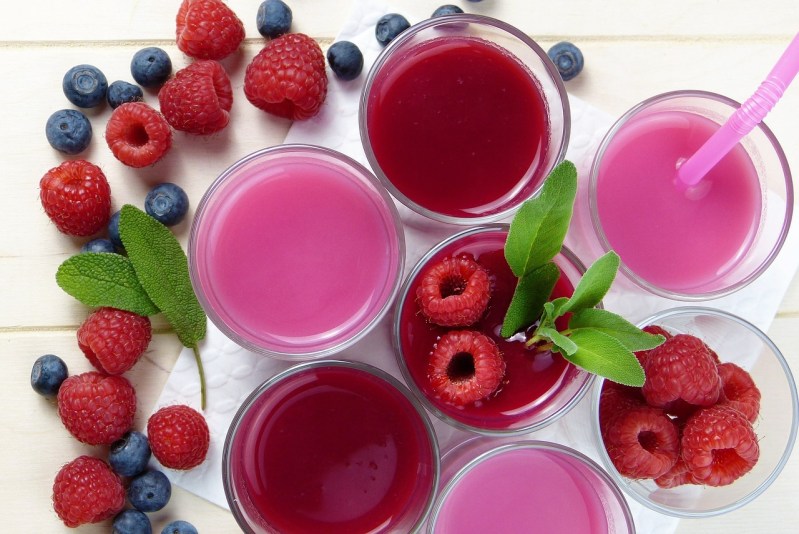
When it comes to processed foods, finding the right balance is of paramount importance. Processed and unhealthy foods, often considered essential in our hectic lives, can indeed play a role in meeting our daily nutritional needs, provided they are approached with vigilance. Surprisingly, many people who follow various forms of Western diets unintentionally incorporate ultra-processed foods into their daily meals, while those who follow a more diet-friendly diet do not. way to eat whole foodslike the Mediterranean diet.
The scope of what’s considered ultra-processed food might shock you, and if you frequently opt for meals on the go, you might encounter them more often than you think. In this article, we explore the topic of processed and ultra-processed foods, highlighting their importance and impact on our overall health.

What are processed foods?
Processed foods encompass a wide range of products that have undergone various alterations from their natural state. According to the United States Department of Agriculture, these changes may include washing, cutting, cooking, freezing, or adding various ingredients to improve flavor and shelf life. It is important to note that not all treatments are inherently harmful; in fact, many minimally processed foods, like frozen vegetables or roasted nuts, can be part of a balanced diet. The key is to be mindful of the extent and nature of the processing, as some methods remove essential nutrients while introducing additives that can be harmful to health. In the following sections, we will explore the varying degrees of food processing, with a particular focus on the often overlooked category of ultra-processed foods.

What are ultra-processed foods?
A separate category of processed foods, ultra-processed foods include the highest level of processing available. Often hidden in pre-packaged and prepared meals, these foods turn up in many unexpected places.
Foods are classified based on how they are industrially processed, based on NOVA food category system. Foods are divided into four categories: unprocessed or minimally processed foods, processed culinary ingredients, processed foods, and ultra-processed foods. As a result, a comprehensive assessment of food processing and its potential health effects can be carried out.
Ultra-processed food are industrial formulations that generally do not contain any whole foods. Think sugary breakfast cereals, microwaveable dinners, sugary drinks, and highly processed fast food items. These items are designed to be incredibly tasty, convenient and durable on the shelf.

8 Ultra-Processed Foods You Didn’t Know Were Ultra-Processed
Protein powders
If you want to build muscle, protein is the way to do this. But did you know that protein powders are considered ultra-processed foods? This is due to their extensive industrial manufacturing process. These products often contain isolated protein compounds, artificial flavors, sweeteners and various additives. These ingredients are combined to create a product far removed from its whole food sources, a sign of ultraprocessing.
Juice
Because fibers and natural sugars are eliminated Made from fruit juice, they are ultra-processed. Although fruit is an important aspect of healthy meals, these products often contain added sugars or sweeteners and are frequently treated with preservatives and flavorings. Bottled smoothies are also ultra-processed because they are often filled with preservatives and contain added sugar. These products often contain more calories and carbohydrates than their unprocessed counterparts.
Fake meat
Fake meat products, like plant-based burgers and chicken nuggets, are ultra-processed because they are created from highly refined ingredients such as isolated proteins, oils, and various additives to mimic the taste and meat texture. These products are often high in saturated fat, sodium and artificial ingredients. Additionally, products like veggie patties may contain more calories and carbs than their unprocessed counterparts. Eating too much of these ultra-processed products can cause weight gain and contribute to health problems.
Sugar-free ingredients
Sugar-free products are typically ultra-processed because they replace sugar with artificial sweeteners and additives, thereby altering the natural state of the food to give it a specific taste with no nutritional value. Ingredients like erythritol, for example, are low-calorie sweeteners that can be used in a variety of products, such as ice cream, candy, and baked goods. However, these sweeteners have been linked to digestive issues and other health problems.
Packaged breads and cereals
Not all bread is equal. Sourdough bread, for example, offers many health benefits, while heavily processed products like hamburger buns and hot dog buns are low in nutrients. Whole grains are at a minimum treaty and retain their nutritional value, but refined grain products, like white bread or cereal, are ultra-processed, removing essential nutrients and adding additives.
Spreads
Ultra-processed spreads like margarine often contain trans fats, emulsifiers and artificial flavors, turning natural ingredients into a less nutritious product. These additives can be harmful to your health and should be avoided. Healthier options include natural spreads like nut butter or hummus. Look for spreads without added sugars or preservatives.
Energy drinks
Energy drinks are considered ultra-processed due to their high caffeine and sugar content, as well as added artificial colors, flavors and stimulants. Sugar-free and sugar-free versions are considered ultra-processed and can be harmful, especially if consumed regularly. Energy drinks should be avoided and replaced with healthier options such as green tea, herbal teas or water.
Processed meats
Processed meats, such as some hot dogs, sausages and bacon, are ultra-processed because they involve curing, smoking and additives to extend shelf life, but these processes often reduce the nutritional quality of the food. Consumption of processed meats has been linked to an increased risk of cancer, heart disease and other chronic illnesses. Healthier alternatives include lean beef, chicken and fish.
Our food choices are often influenced by convenience, but it doesn’t have to be difficult to find a healthy diet. You can make better choices by understanding the difference between healthy and unhealthy options. A healthy diet is essential to maintaining a healthy lifestyle. Eating fresh, unprocessed foods is the best way to feel better. The next time you buy something at the supermarket, take the time to check the ingredients and nutritional information and consider healthier options whenever possible.
Editors’ Recommendations
